Friday Feb 20, 2026
Friday Feb 20, 2026
Wednesday, 21 August 2024 02:59 - - {{hitsCtrl.values.hits}}
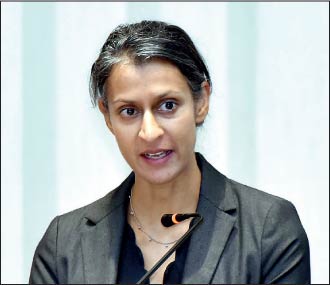
Australian Deputy High Commissioner Lalita Kapur
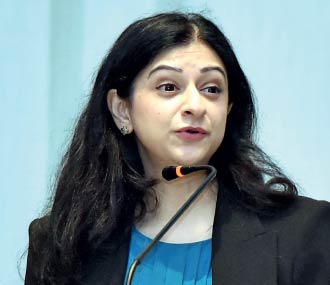
MDF Country Director Maryam Piracha

MDF Country Team Coordinator Deshan Wickremesinghe
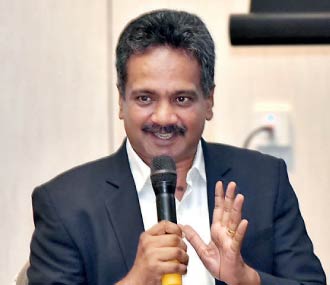
Moderator Peradeniya University Crop Science Professor, Prof. Buddhi Marambe
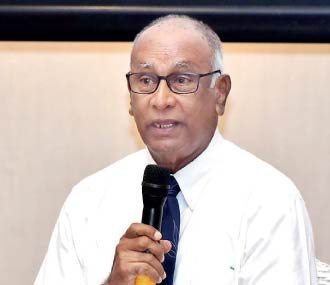
Tea and Coffee Planter Murugiah Balendran
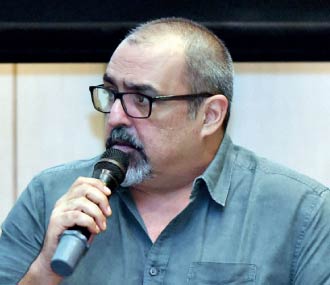
Tusker Coffee Founder Kenneth McAlpine
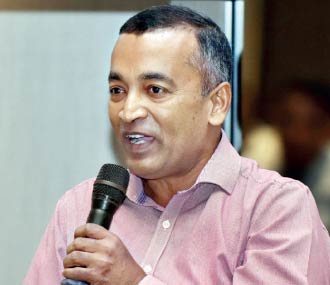
Unipower Research and Development General Manager Rohitha Dabarera
Sri Lanka’s specialty coffee sector has grown significantly over the past few years, with demand driven by a vibrant cafe culture and tourism.
Businesses, recognising the opportunities in coffee, have increased investment in the sector. However, climate change is an emerging threat to the industry. The Australian Government funded Market Development Facility (MDF) has commissioned Sri Lanka’s first study on the impact of climate change on Sri Lanka’s specialty coffee industry, and recently held an industry event to discuss the findings. Over the past few years irregular rainfall patterns have had a significant impact on coffee yields and quality. However, there is limited information available in the market regarding the impact of climate change on coffee. To bridge this knowledge ενο MOF has been working to develop the specialty coffee sector in Sri Lanka since 2017 and recently commissioned a study to assess the impact of climate change on Sri Lankan coffee
MDF hosted a discussion, ‘Mapping the Future Impact of Climate Change on Sri Lankan Coffee, on 7 August at Courtyard by Marriott to discuss the key findings from the study. The discussion brought together key private and public stakeholders from the coffee industry. The keynote address was delivered by Australian High Commision to Sri Lanka Deputy High Commissioner Lalita Kapur. The lead climate scientist for the study, Dr. Andrew Magee, presented the findings, highlighting changes in cultivable coffee land area in five key districts (Nuwara Eliya, Badulla, Matale, Kandy and Kegalle), based on climate projections.
The study also suggested solutions for climate change adaptation for businesses, such as investing in water management systems and implementing soil conservation techniques, developing pest and disease management strategies, diversifying into more climate resilient coffee varieties, and providing farmer training. The full study can be accessed on the MDF website
The event also hosted a vibrant panel discussion, moderated by Professor Buddhi Marambe from the University of Peradeniya, with experienced tea and coffee planter Murugiah Balendran, Unipower General Manager – Research and Development Rohitha Dabarera and Tusker Coffee Founder Kenneth McAlpine sharing their expertise on practical solutions to make coffee production more climate-resilient. The panel discussion generated a lively dialogue among the participants, with key points raised including good planting practices and processing solutions that preserve quality.
MDF Sri Lanka Country Director Maryam Piracha noted that: “Australia has been a longstanding proponent of Sri Lanka’s coffee industry since 2017, through its MDF program. The future of coffee in Sri Lanka has strong potential but we need to invest in climate-resilient practices to make it sustainable. Therefore, we are pleased to take this first step to understand the long-term impact of climate change on coffee and use the findings of this study to invest in more climate-resilient models to improve coffee production and quality in Sri Lanka.”
Pix by Ruwan Walpola